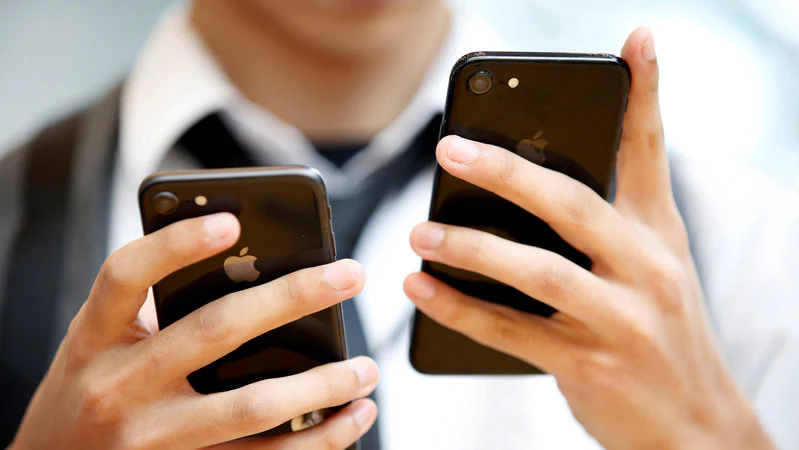An iMessage vulnerability on older iPhones running iOS can be exploited by hackers to send malicious code and take control of the device.
Russian security firm Kaspersky said it accidentally discovered the vulnerability after some employees' iPhones became unusually slow and unable to update to new iOS. The company then backed up the suspected infected devices and found evidence of the malware. Kaspersky called the vulnerability a "triangulation operation."
Two older iPhone models in the hands of a user. Not updating iOS makes iPhones vulnerable to attacks. Photo: Reuters
Specifically, the hacker will use iMessage to send messages with malicious code attached to the target iPhone. The malware can then penetrate into iOS without the user knowing. After successful installation, they will "listen to commands" from the hacker remotely every time the device connects to the Internet.
Kaspersky said that by exploiting the vulnerability, the malware had unrestricted access to the iPhone and ran a series of commands to collect personal information, including microphone recordings, images from messengers, and geolocation. Even deleted messages could be recovered. After stealing data, the software automatically erases traces, making it difficult for users to detect that their iPhone was infected with malware.
The “triangle operation” is estimated to have been active since 2019 and is still ongoing. Apple is believed to have known about the vulnerability and patched it, as only iPhone models running iOS 15.7 or earlier were vulnerable.
Apple said this week that more than 80% of iPhone users have updated to iOS 16, meaning the majority are no longer vulnerable to attack. However, with 1.36 billion active iPhones in the world , 258 million iPhone users could still be targeted.
The easiest way to avoid this problem is to update to the latest iOS. However, if the device is already infected, the malware will block the update, so the only way is to restore the device to factory settings.
Apple has not responded to Kaspersky's report.
According to Phonearena/VNE
Source































































































Comment (0)